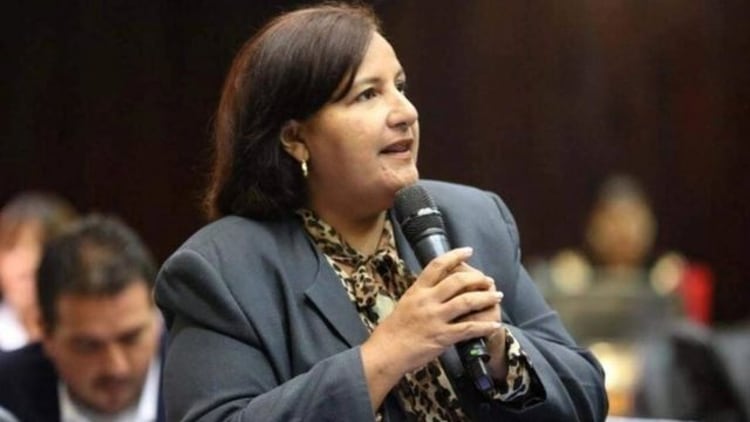The Diplomat
The new president of the Venezuelan opposition-controlled National Assembly, Dinorah Figuera, expects the Spanish government to provide her with “guarantees of protection” against the arrest warrant issued against her by Nicolás Maduro’s regime, as she is a “political asylum seeker”.
The Maduro regime’s attorney general, Tarek William Saab, announced on Tuesday that he had asked Interpol to issue a red alert for the arrest of the new board of the Venezuelan parliament elected at the end of 2015, of which Figuera is a member, as well as Auristela Vásquez, second vice president, who recently moved her residence from Madrid to a town in Toledo.
The new president, who currently resides in Valencia, took over the reins of the body this month, replacing Juan Guaidó, who was removed from the post by his colleagues after ending the interim cabinet.
Figuera said she had been in contact with the foreign ministry and expects a “positive response” in terms of “guarantees of protection”. “They have known about my case for some time”, he explained in an interview with Europa Press, in which he acknowledged that he would be fully traceable.
“I am here in conditions of political asylum”, she added, going on to point out that the international agreements signed by Spain theoretically protect her from any demand for arrest that might arise from Caracas.
The opposition leader condemned the “systematic” efforts of the Venezuelan authorities to “criminalise” and “stigmatise” dissidents, although she pointed out that they are not giving up. “We are unbending,” she said.
Figuera also avoided questioning the Spanish government’s decision to upgrade diplomatic relations with Venezuela back to the first level.
In this regard, she attributed the recent appointment of a Spanish ambassador in Caracas not so much as “support for Maduro” but rather as a confirmation of the bureaucratic “needs” of Venezuelans living in Spain, given that Venezuela’s administrative “structure” remains in the hands of Chavism.
For his part, Guaidó warned the Spanish government, after it decided to elevate its representative in Caracas, Ramón Santos, to the rank of ambassador, that now is not the time to “relativise” the “dictator” Nicolás Maduro, who maintains his “systematic scheme of persecution” of dissidents.







